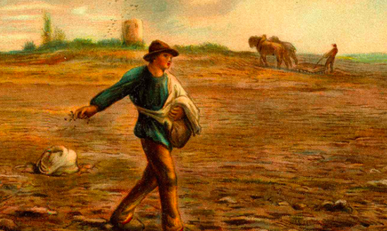 It is understandable that suburban, exurban, and affluent church congregations, typically, do not see the link between the gospel and the flourishing of their neighborhood. Here’s the problem: Which neighborhood? Whose neighborhood? And, O by the way, our neighborhoods by definition are flourishing. Suburban and exurban congregations tend to be a mix of like-minded, demographically related, geographically similar people who travel various distances away from their own neighborhoods to a building in an incongruent neighborhood (to most of the congregation), the place of gathered, weekly worship—the building they call “our church.” This is the habitus of Christians within suburban congregations each week. A habit that teaches, forms, and qualifies an understanding of the gospel. The neighborhood is a space we leave for church, more a concept of social structure rather than a concrete place or association; a place where my house is located, but detached from my church experience and faith. This offers a building-centered church experience that more easily relates to the command to love the Lord your God, but has no real, concrete relationship to love your neighbor(s) as yourself. In a real way, a suburban church congregation is without a neighborhood—at least without a specific one. There is no neighborhood for the church to ultimately be identified with, for the members are mostly transported from their actual neighbors and family in real neighborhoods to a one-size-fits-all neighborhood that is stuffed inside a building. Rather than a public faith that engages a neighborhood, practicing the second-which-is-like-unto-the-first-command to love one’s neighbor, more affluent and suburban/exurban congregations form a more privatized, truncated, thin faith (i.e., Christian experience) and, as a result, there is a bent toward more cognitive (knowledge-based) and behavioral outputs (i.e., activities) and outcomes. Thus, the church, the gospel, and discipleship are all aligned with a neighborhood-less social grouping, separated from the day to day realities of life in a neighborhood. Unexpectedly, the early church grew, not because they verbally witnessed, had an outreach program, or held bible studies; but, because they lived their daily lives in contrast to the world around them—their habits were different and their habits were noticed by their neighbors. And, not just in cultured, acceptable behavioral ways, but in concrete, intentional actions. Their discipleship included helping the poor, rescuing exposed (abandoned, thrown away) babies, adopting orphaned children, rescuing prostitutes (temple slavery), and meeting the needs of the widows (who were the most vulnerable and under-resourced population in the empire). This is how the body of Christ, the church, grew. The presence of Jesus was experienced in concrete intentional action through the church—practicing the presence of Christ amid neighbors. Typically for the non-urban churches, evangelism and mission is understood, not by kingdom righteousness, advocacy for injustice, and social action on behalf of a neighborhood, but by numbers of people funneled into a building for a worship service, a bible study, or special fellowship event—a head count of conversions or transfer growth. Church leadership institutes activities and behaviors to draw the unchurched out (and away) from their neighborhood (without actually going into those neighborhoods) and into the building (they call church), which is neighborhood-less (or at least in a neighborhood that is not their own). When the liminality of church life is separated from the daily life of a neighborhood, the gospel and its associated outputs (i.e., activities) and outcomes are disconnected from the life of their neighbors. When one’s own neighborhood consists of those who have had the privilege of flourishing and a church congregation is detached from a neighborhood, the Christian experience affirms a gospel unrelated to the flourishing of a neighborhood. Christian behaviors, then, are limited to relationships and social associations that affirm “traditional” cultural values (within that building) rather than including behaviors that understand the dynamic relationship between structures, systems, and people’s well-being within the context of a neighborhood. The gospel of the suburban church is a limited, one dimensional gospel. A one-dimensional gospel indicates solely a person/God dynamic relationship; whereas a multi-dimensional gospel includes the person/God dynamic and, also, creation/God, person/creation, and person/person. The habits of the suburban and exurban church makes it difficult to see the link between the gospel and the flourishing of a neighborhood.  For a more comprehensive study on the relationship between the gospel and social action, please take the time to read through my Wasted Evangelism, an exegetical commentary on Mark's Gospel. I am also working on another volume on Church Growth from an exegetical study in Ephesians, hopefully titled, Not (just) By the Numbers: Getting Beyond Building-Centered Church Growth in Search of Other Biblical Outcomes—a Thesis on Biblical Temple-Church Growth; see some posts related to these studies (evangelism and Not by the Numbers).
1 Comment
 When the church, a church, or Christians align with a political agenda (right or left), there is great risk that innocent people will be put in harms way and, most certainly, whatever power is shared (between party and church et al.) is earthly power (but can be confused as God’s blessing). Perhaps this is why Jesus didn’t challenge his new flock to take over the Roman or Jewish government or defeat the High Priest or Caesar. The NT seems to present the church’s revolutionary power within a different model, a wholly other platform and venue. It is in the arena (literally) where Christians met certain death wherein the church had a platform for cultural and social change. Despite the musings of some that the early Jesus movement was a protest against an oppressive Empire, the apostolic and early church lacked the power and any public platform for social and cultural change. However, the household temple-church filled in Spirit was and is the platform for making known God’s cosmic reconciliation through which cultural and social change is inaugurated in the world, particularly the worlds of our neighborhoods and communities. The local church, that is, gathered congregations of people who identify with the Lamb who was slain and follow in the ways of Jesus, is the space where God brought and still seeks to bring about cultural and social change. Church—more so, local churches—is how God changed an empire and defeated Caesar. We need to consider this when asked, "How does Christianity address the issues pressing upon us today" or "What should Christians do to confront the issues of race, abortion, poverty, greed . . . ?" Christians did not “take to the streets,” but they made known God’s cosmic reconciliation as household temple-churches through the reoriented relationships of reciprocity as described in Ephesians 5:21-6:9. Paul called the gathered Christians, in particular Gentile Christian men (i.e., the husbands-fathers-masters), to act against their own social self-interests and against the norms of the dominant culture, literally taking up arms against the empire by adopting the reconciled, sacrificial love of Messiah Jesus, demonstrating reciprocity to wives, children, and slaves. Paul advocated the first #Wives/WomenLivesMatter, #ChildrenLivesMatter, and #SlavesLivesMatter (right there in Ephesians 5:21-6:9). The church venue was the incubator and model for systemic social change. The local church must now live “no longer as the Gentiles walk” (Ephesians 4:17). Paul did not seek to overthrow the authority structures of the culture in which the church found itself. But he does instruct the multihouseholds of God, the all-welcoming worshipping temple-church venues, in a new way of relating to one another in Messiah. This is one of the strongest arguments against homogenous churches and for multi-demographic churches.  An etymologically based proclamation-centered evangelism is insufficient to reflect the reality of the presence of the kingdom of God, and, as well, disconnects evangelism, not only from the full life of the church, but also from the public and social implications of the kingdom. True, it might be anachronistically incorrect to jump completely from Jesus’ deeds straight to social action, but it is equally wrong to turn Jesus’ parables into mythic stories that affirm “traditional” American values, limited government, and a political and legal agenda that seeks to promote “our way of life” [note A]. Although leaping from the text to “Christian humanitarianism” is an over-simplification, we cannot ignore that Jesus engaged social institutions, nor overlook that Jesus had immense theological conflicts with temple leadership that reached back to Exodus stipulations and their social implications regarding the vulnerable. The kingdom context places evangelism directly in the midst of the public realm where the Christian community is obligated to deal with structural sin and be an advocate for the vulnerable and the poor. Also, to not include social action outcomes in evangelistic activities, limits the possible outcomes where God’s rule and reign can be expressed, realized, and experienced. Such limiting is the result of a privatized and dualistic understanding of the gospel. Rather, a kingdom-centered evangelism allows for the fullness of the gospel to be realized in individuals, groups, structures, systems, and even culture. Evangelistic strategies and actions ought to enact, demonstrate, fulfill, and advocate for outcomes consistent with God’s reign over all the realms of humanity. Evangelistic outcomes ought to include both personal decisions for Christ and actions that promote God’s righteousness and, in particular, social action that engages the needs and welfare of the vulnerable and the poor. Almost four decades ago, David Moberg, in his The Great Reversal: Evangelism and Social Concern, asked how Christians were to deal with the issues of poverty. This continues to be a pertinent question for the Christian community today—let the debate be lively! However, the topic should not be shrunk to public vs. private, government vs. church, or red vs. blue politics. The gospel of the kingdom is “multidimensional and all-encompassing” and is concerned with both the individual and society. Of course, the gospel calls individuals to a right relationship with God, but it goes beyond private piety, calling Christians, especially Christian leadership, to engage, not only with direct action (i.e., social action) on behalf of the economically vulnerable, but also social and institutional structures that work against fulfilling the church’s obligations toward the poor. The Exodus land-laws, operating behind Mark’s programmatic theme, were given to ensure that the vulnerable (i.e., the land-less) were full participants in the benefits of living in the land.[2] Social Action is a means to ensure that the blessings and benefits of living in society reach to the poor. The parable of the Sower who sows encourages the Christian community to waste its seed, sowing it into every realm and every corner of society “in hopes that good soil might somewhere be found,” because it is “our area.” Note A: Actually, it is not altogether inappropriate to make a logical leap from Jesus’ deeds—miracles, exorcisms, healing, over-turning temple-trading tables, cursing a fig-tree, and the ultimate temple-destruction announcement—for it has been noted that some of the miracle stories contain references to actual political referents, and the miracles themselves carry a contrast to a social-political dynamic of crowd control. Note B: For insight on “the land” and the land-less poor, see Walter Brueggemann, Land: Place as Gift, Promise, and Challenge in Biblical Faith (Fortress). *Excerpt from the 2nd chapter of Wasted Evangelism: Social Action and the Church's Task of Evangelism (Resource Publications, an imprint of Wipf & Stock).
 R.T. France concludes that the “Mark has declared his hand” in the opening verses of his Gospel [1:1-3], setting the framework in which we are to understand his whole story. We accept that Mark has drawn into his Gospel the motifs of God’s dominion, the Exodus, exile, the Spirit, and idolatry. What is undervalued, overlooked, or even ignored is that the same context that contains these obvious correspondences [from OT contexts in Exodus 23, Malachi 3, and Isaiah 40], likewise, includes direct references regarding socio-economic relationships and community responsibilities toward the poor and vulnerable. [From the chapter on Mark 4, "Wasted Evangelism: Social Action Outcomes and the Church’s Task of Evangelism" in my book, Wasted Evangelism.]  In the field of social services, of which I have been vocationally related for the last seventeen years, outcomes are an important element in determining what actions are needed. So, likewise with evangelism—if an outcome of evangelism is “personal decisions for Christ,” then activities of soul-winning, witnessing, crusades, and salvation-centered preaching are reasonable; if numerical church-growth is the outcome, then activities that promote such “growth” are acceptable; and, as I posit in Wasted Evangelism, if addressing the issues of poverty and social-righteousness are outcomes, then social action is a valid evangelistic activity. It is not entirely clear that the New Testament presents the concept of evangelism merely from verbal consideration related to the etymology of the word “evangelism.” The early church, especially reflected in the Gospels, seems more interested in creating a narrative understanding of evangelism so future church generations could imagine what it means for the gospel of the kingdom to have been inaugurated. Any attempt to develop a coherent theory of evangelism must begin with the implications of the presence of the kingdom, which is wholly constitutive of the gospel. The parable of the Sower who sows, which fits within this framework, offers a narrative definition of evangelism that includes social action outcomes. *Adapted from the chapter entitled “Wasted Evangelism” on Mark 4’s parable of the Sower who sows in Wasted Evangelism >> |
AuthorChip M. Anderson, advocate for biblical social action; pastor of an urban church plant in the Hill neighborhood of New Haven, CT; husband, father, author, former Greek & NT professor; and, 19 years involved with social action. Archives
February 2024
Categories
All
|
Pages |
More Pages |
|
 RSS Feed
RSS Feed